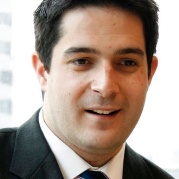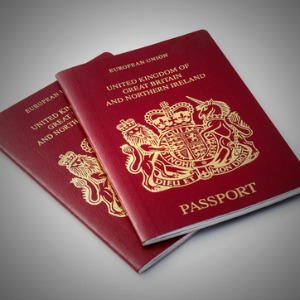What will happen to my pension if I work abroad? Will I be able to rejoin the superannuation scheme if and when I return?

Many GPs are choosing to work for some time abroad, but are still understandably keen to retain the benefits of the NHS pension scheme. If you are going to do humanitarian work you may be able to stay in the scheme while abroad, but would need your employer’s support.
The more common scenario, though, is simply going to work abroad in general practice. If you’ve been in the scheme less than two years you can ask for a refund but this won’t apply to qualified GPs, who will probably have five years or more.
In this case, if you return within 12 months you automatically retain membership, and total membership minus time abroad will be used to calculate your pension on retirement.
If you return after longer than 12 months you can still rejoin and contributions both before and after will be used to calculate your final pension.
In both cases you can apply to pay in to make up missing contributions while you were abroad. The drawback is that you won’t be able to access the sickness or death-in-service benefits abroad as you will be outside the pension scheme.
In all cases, obtain individual advice from BMA pensions or your adviser.
Dr David Bailey is the deputy chair of GPC Wales and a GP in Caerphilly

With the introduction of the 2015 scheme from 1 April, breaks in service must be carefully considered for those who have protected membership of either the 1995 or 2008 schemes. A break could lead to the loss
of protected membership and it is best to seek advice before making a decision.
Under the 2015 scheme, if you rejoin within five years of leaving, your previous benefits will be uplifted by the full in-scheme revaluation of CPI (Consumer Price Index) plus 1.5%, effectively linking all benefits under the scheme.
If you rejoin after five years, your previous benefits will not be linked and the benefits will be calculated separately.
Note also that as a non-UK tax payer your ability to pay into a UK-registered pension scheme is going to be limited.
Gareth Rose is an independent financial adviser at Rowanmoor Consultancy
Would my UK-based medical defence, which would lapse if I move abroad, cover me for complaints that arise relating to work done while I was still practising in the UK?

You are right to be concerned, as complaints and claims can arise many months or even years after treatment took place. The short answer is yes, if you are a member of a medical defence organisation (MDO), you should be indemnified for complaints and claims that arise if you go to work abroad and stop being
a member. This is called ‘occurrence-based’ indemnity.
In a minority of cases, GPs may be indemnified on a ‘claims-made’ basis (usually through a commercial insurer) and this means they would only be covered for claims notified while the policy was active. These doctors may need to purchase additional cover to ensure they could continue to report cases while their policy was no longer active.
If you are going to work overseas, it’s important to let your MDO know as soon as possible. It may be possible to put your membership on hold for the period you are away or to include the overseas work in your membership – for example, if you are going to be working in a teaching post for a short period or if you are in a supervised post as part of a training scheme.
Dr Pierre Campbell is the head of underwriting at the MDU

Yes, your UK indemnity will cover you for anything that comes up from work you did in the UK. Your MDO may also be able to offer membership for members who move abroad. Options are usually based on:
• The country the member is planning to work in.
• The scope of their work abroad.
• The date they start work and their return date to the UK (if known).
• Whether the work is voluntary or if the professional is receiving payment / expenses for their work.
• If applicable, the name of the charity or association they will work for.
• Whether they are the only doctor or one of a group.
• The type of patients they will be treating.
• If the member benefits from employer or local indemnity.
If a GP with MPS indemnity is moving for more than three months to a country in which we have membership, we should be able to arrange a transfer easily. If you are going abroad for less than three months, you may be able to retain your existing arrangements and extend your benefits to cover working abroad.
If the GP is moving to a country where their MDO does not offer membership, they may be able to get short-term membership which should allow them time to arrange protection with a local MDO (although their MDO will probably not be able to assist them with this process).
If your MDO cannot offer any options while you are abroad, membership could be retired, deferred or withdrawn. GPs registered with MPS who plan on coming back to the UK have options including a simple transfer from one country back to the UK. However, others may require a new application for membership.
Returning GPs should make contact with their MDO two months prior to returning to discuss the options.
Dr Rob Hendry is the medical director at the MPS
If I leave the UK, what happens to my place on the performers list?


GPs who do not respond to a validation enquiry or fail to demonstrate that they have provided NHS services over the preceding 12 months can, and most likely will, be removed from the performers list. For further details, refer to Londonwide LMCS’ guidance.1
If you are away from UK general practice for two years or more, you must undertake formal retraining by successfully completing the deanery’s induction and refresher course and pay the course fees yourself.
In order to get back on the performers list, you’ll need to complete an electronic application form on NHS England’s website, submit it to the primary care support services of the region you wish to apply to and make an appointment with the primary care support office to submit the supporting documentation in person.
Submit an enhanced disclosure and barring service (DBS) check (previously known as CRB), an occupational health clearance certificate, photo ID (such as a passport), your CV, a copy of your most recent appraisal and evidence of medical defence body membership.
GPs who have lived abroad within the preceding five years will be asked to provide a police check regarding any criminal activity in the country or countries where they have lived. You must also provide a certificate of graduation or postgraduate training from a UK or Irish Republic medical school along with two recent clinical references.
All this information will be sent to the responsible officer, who will decide whether you can be accepted onto the performers list. Straightforward applications usually only take a few weeks but any complications (for instance, adverse findings on DBS checks, long absences from the country, inability to provide satisfactory references, or a need for retraining) will prolong the process.2
Remember, you are not allowed to work as an NHS GP in England if you are not included on the English performers list but while you wait for registration you may:
• Do administrative and management work (records and results, for example).
• Work as a healthcare assistant.
• Deliver GP services through a secondary care trust operating an urgent care centre.
• Deliver private GP services.
• Work in any other clinical, research, teaching or academic capacity for which you are qualified, as long as you have a licence to practise and are suitably indemnified.
Dr Tony Grewal is a medical director and Vicky Ferlia is director of GP Support at Londonwide LMCs
Pulse October survey
Take our July 2025 survey to potentially win £1.000 worth of tokens













